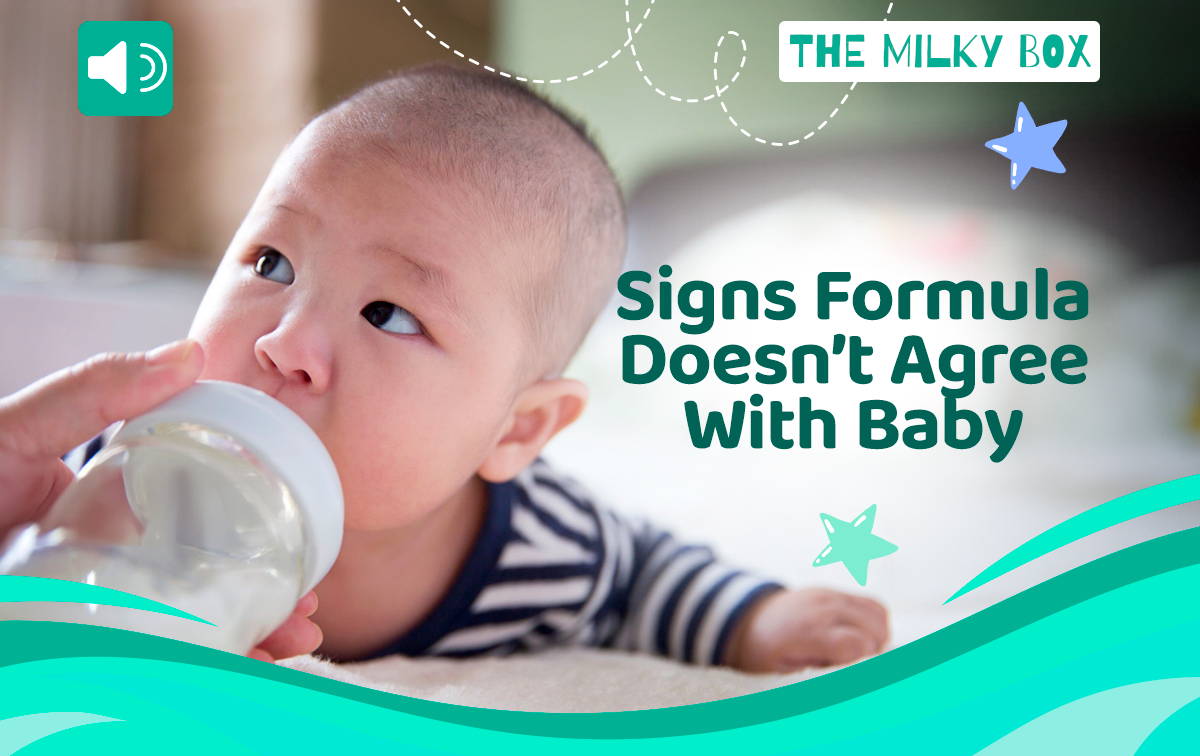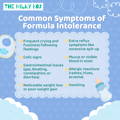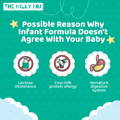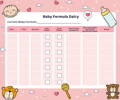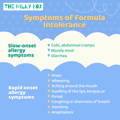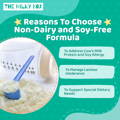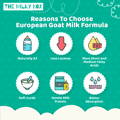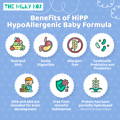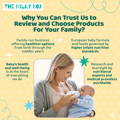Identifying when a baby is not tolerating formula can be challenging for parents. Although crying, burping, and fussiness are common in newborns, if these symptoms occur more frequently than usual, it may suggest that your baby is experiencing discomfort due to the formula.
Let's look at some symptoms beyond the usual daily worries that could indicate that your baby is having trouble tolerating formula:
● Frequent crying and fussiness following feedings
● Colic signs
● Gastrointestinal issues (gas, bloating, constipation, or diarrhea)
● Noticeable weight loss or poor weight gain
● Extra reflux symptoms like excessive spit-up
● Mucus or visible blood in stool
● Allergic reactions (rashes, hives, eczema)
● Vomiting
You can quickly identify signs of formula intolerance by getting an expert opinion. A pediatric nutritionist working with your medical provider can help you better understand your baby's symptoms, identify their cause, and find the best solution, which may include formula changes.

